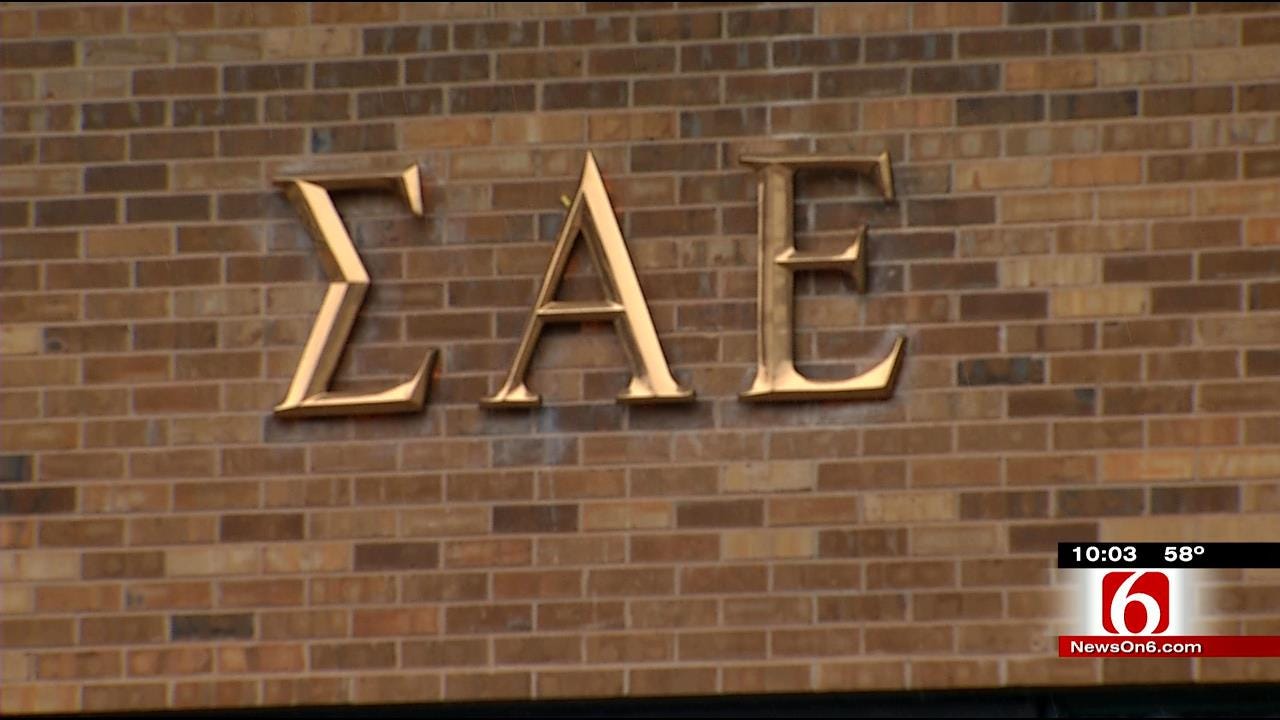Could Expulsion Of OU Students In Racist Video Violate First Amendment?
OU President David Boren dealt swift justice as he expelled two of the students in the SAE video, but what rights do the students have?Tuesday, March 10th 2015, 11:08 pm
OU President David Boren reacted quickly as he expelled two of the students in the SAE video which shows fraternity members chanting racist lyrics on a bus ride to an Oklahoma City country club.
Boren said the chant creates a hostile environment for others. In it, you hear the students using the “n-word” and reference a lynching.
Boren also shut down the fraternity and gave all members until midnight Tuesday to be out.
So, what kind of rights do the two expelled students have in all of this?
Many arguments are swirling around the First Amendment, which allows you to say virtually anything you want.
But in his letter Boren said they're being expelled because their leadership role in the chant created a hostile educational environment.
3/10/2015 Related Story: OU President David Boren Expels 2 Students Related To Racist Video
SAE's national headquarters evicted the frat from campus, but can OU actually expel the students from school?
According to Boren, absolutely - he expelled the two students Tuesday, effective immediately – but Tulsa lawyer Doug Dodd said the waters are still very muddy at this point regarding the students' rights.
“It is possible that the expulsion could stand," he said. "I'm not sure that is clear right now because the university has its own rules and regulations on what a college environment is supposed to be."
According to Boren's letter, the students have until Friday to appeal the decision.
"I suspect their argument could be 'We said what we said and did what we did, but we were not on campus and not part of a university activity, so you should not punish us for what we did,'" Dodd said.
He said there could be a lawsuit against OU on behalf of those students.
3/10/2015 Related Story: Parker Rice Apology: "Yes, the song was taught to us, but that too doesn't work as an explanation."
However, Boren said the expulsion is based on their leadership role over what he calls the racist chant that led to the hostile environment, not the actual chant itself.
"My guess is that, right now, this might be one of those First Amendment things where First Amendment does not necessarily trump the university regulations in this case," Dodd said.
As far as other court cases like this one, Dodd said there aren't many to compare it to, but did mention some that dealt with things published in university newspapers.
More Like This
September 29th, 2024
September 17th, 2024
Top Headlines
December 14th, 2024
December 14th, 2024
December 14th, 2024












